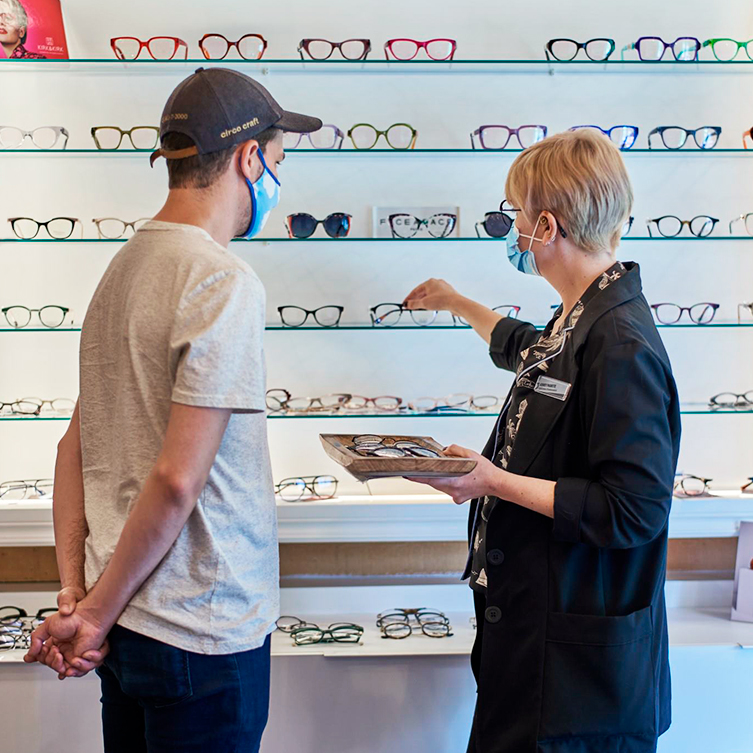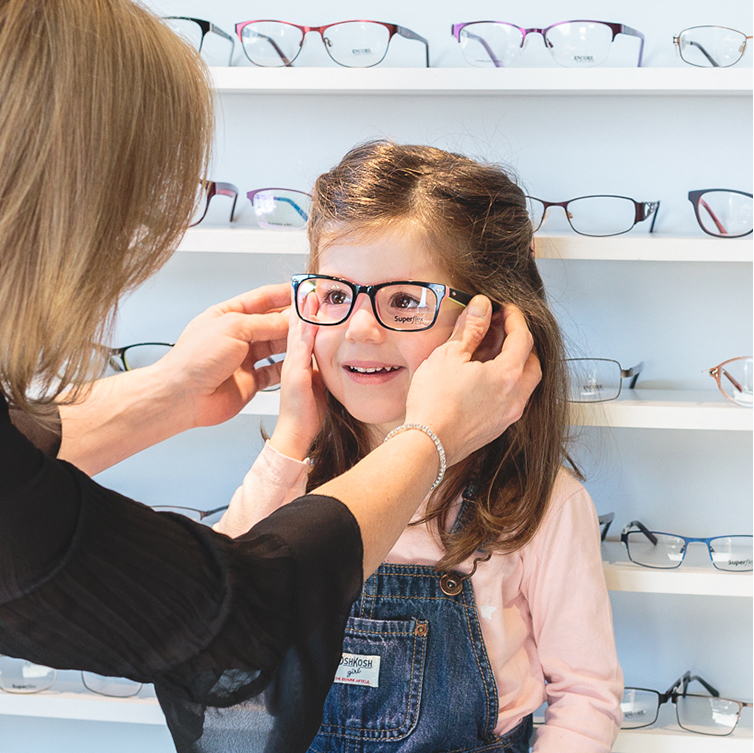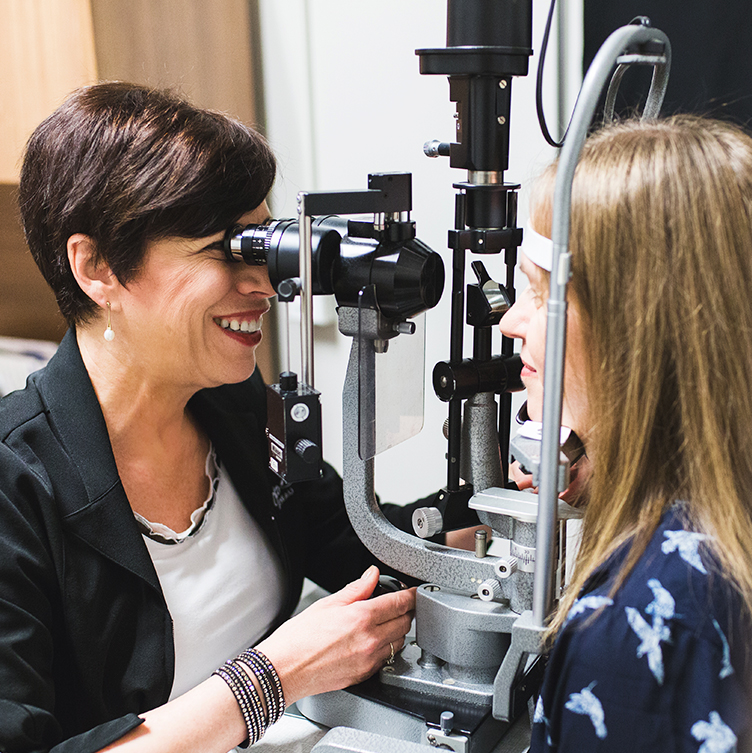Understanding the different roles of optometry professionals
When you visit a clinic for an eye exam, a contact lens fitting, or to buy your next pair of glasses, you interact with a variety of eye care professionals with different areas of expertise. In this article, we shed some light on what each of these professionals does and how they help you keep your eyes healthy.
Clinic staff |
Clinic staff |
Eye exam with an Opto-Réseau professional |
Opticians
Dispensing opticians have a diploma in visual orthotics, meaning they have three years of college training.
Opticians are experts in the sale, fitting, and repair of eyewear products like glasses and contacts. An optician’s duties vary depending on the clinic. Some specialize in fitting contact lenses, while others provide customers with eyewear recommendations.
Opticians are your go-to experts—they’ll take the time to understand your needs and lifestyle and help you choose the right glasses or contacts for you. They work with optometrists to recommend the best solution for your vision needs and face shape.
Did you know? Only three educational institutions in Quebec currently offer a visual orthotics techniques program.
Optometrists
To become an optometrist in Quebec, you need to complete a five-year PhD in optometry. Optometrists write prescriptions to correct your vision and treat eye diseases.
They conduct eye exams that include a vision test to determine your prescription and check your eye health.
Optometrists also perform emergency consultations and can treat certain eye diseases. If needed, your optometrist can refer you to an ophthalmologist if they believe you need eye surgery.
Did you know? In Quebec, Université de Montréal’s École d’optométrie is the only institution to offer an undergraduate optometry program.
Ophthalmologists
Usually you only see an ophthalmologist at the request or recommendation of your optometrist.
To become an ophthalmologist, you must complete a four-year PhD in general medicine, a five-year residency in ophthalmology, and a two-year specialization.
Your optometrist may refer you to an ophthalmologist if you have an eye condition that requires a specific treatment or if you need eye surgery.
For these reasons, ophthalmologists generally work in hospitals or private clinics.
Optometric assistants
Optometric assistants are usually your first point of contact when you visit a clinic.
Assistants’ responsibilities can vary from clinic to clinic, depending on how many optometrists and opticians work there. The main job of an optometric assistant is to welcome patients, schedule appointments, process payments, and conduct pretests.
Some optometric assistants have also been certified after receiving a training that allows them to perform certain tasks under the supervision of an optometrist.
Like other members of the team, optometric assistants are invaluable resources for patients. The assistant’s daily goal is to ensure sound priority management and provide exemplary customer service.
Devoted, well-trained teams to meet your needs
Now that we’ve gone over the roles of the different professionals, let’s see how they all work together at the clinic.
The Opto-Réseau family is made up of optometrists and opticians, many of whom own their own clinics. The number of optometrists, opticians, and optometric assistants varies depending on the needs of clients in the region. But no matter where or when you visit a clinic, there will always be at least one optometrist on duty. Certain clinics also occasionally work with ophthalmologists.
Are you due for an eye exam? Contact the team at your Opto-Réseau clinic to schedule an appointment!
- Eye exam
- Eyewear Specialist
- Health






